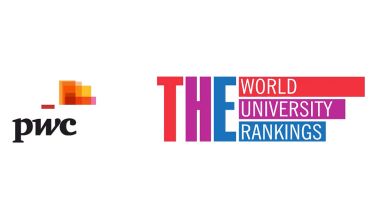Across African higher education institutions, the shift to remote learning has largely been successful, but more progress is required in terms of faculty development
The Covid-19 pandemic caused higher education institutions around the world to rapidly accelerate their digital transformation plans. In Africa, this presented unique challenges regarding accessibility and connectivity. It also caused issues that institutions in many other parts of the world will be familiar with, not least encouraging and supporting faculty engagement with new modes of teaching.
At a round table held in partnership between Times Higher Education and PwC, education leaders from across the continent met to discuss these challenges and the importance of getting faculty members to align with recent educational shifts.
Dion Shango, CEO of PwC Africa, began by speaking about the need to foster digital upskilling in the communities where PwC has a footprint. “At PwC, we have a purpose to build trust in society and solve important problems,” he said. “In many respects, we are a training institution, acting as a key stakeholder within the academic fraternity. Because we are also a people-oriented business, we see it as one of our core functions to promote education in all the communities where we have a presence. In Africa, across a continent that was already plagued by poor access to quality higher education, Covid-19 has exacerbated existing problems, shining a spotlight on the haves and have-nots. This is something we are working hard to address.”
“As we look at the blurring of the analogue and digital worlds, one of the key issues continues to be our faculty’s state of readiness,” said Dhaya Naidoo, chief information officer and executive director of Tshwane University of Technology. “Over the last 10 years, there has been plenty of talk around curricular reinvigoration, but we have not seen a unifying theme around our practitioner research interface. The change we want to see at the faculty level must be worked through with our community: it cannot come through machine learning or other digital tools alone.”
Bill Puplampu, vice-chancellor of Central University in Ghana, agreed. He stated that his institution was getting feedback from faculty members regarding the difficulties they were facing. “To manage the digital transformation, you must listen to faculty members and understand their challenges,” he said.
Mamokgethi Phakeng, vice-chancellor at the University of Cape Town, noted that “higher education institutions cannot view themselves as islands of excellence”. At her university, taking an active leadership role by collaborating with basic and secondary education is vital. “Our role is both developmental and disruptive,” she said. “We work with other institutions around the world, not just to learn but to contribute to global knowledge. For example, at UCT, we recently launched our Online High School to give learners across South Africa the opportunity to develop their full potential before entering university, other higher learning institutions or workplace environments. We are open to collaboration – both locally and internationally.”
Dhanjay Jhurry, vice-chancellor at the University of Mauritius, was keen to point out that digital transformation has roots that go much deeper than the start of the Covid-19 crisis. “Computer-mediated teaching and blended learning began back in the 1990s,” he said. “Since then, we have progressed a lot, but many universities are still hampered by a rigid structure and a reluctance to embrace change. Digital transformation is a long-term process – one that is facilitated not only by tools and processes but by individuals.”
Francis Petersen, vice-chancellor at the University of the Free State, echoed Jhurry’s view. “Different universities have different trajectories,” he commented. “At our institution, we began our digital transformation strategy many years ago with a focus on people, technology and governance. Still, a lot more research needs to take place around pedagogy and quality assurance. We are using tools like data analytics to explore these issues.”
One challenge mentioned by several leaders during the round-table discussion was how to leverage digital transformation as a long-term resource – one that continues to deliver beyond the pandemic. Ntate Daniel Kgwadi, vice-chancellor at North-West University, explained that his institution has a unit for open distance learning to improve accessibility for students, particularly those from areas where connectivity is a challenge. “The unit helps staff and students to receive assistance with their technological challenges,” he explained.
Frederick Armah, director of the Directorate of Research, Innovation and Consultancy at the University of Cape Coast, warned that issues can emerge even when institutions take a long-term approach to digital transformation and faculty development. “We had a centre for teacher support and distance learning long before Covid, but most of my colleagues had not utilised it to its fullest – there was a lot of inertia. So, we carried out a needs assessment that looked at the infrastructure, the systems and the gaps. This assessment took one month initially, but it continues to evolve and deliver insights to this day.”
Despite the progress that many African universities have made with their faculty development, some challenges persist. Dorcas Obiri-Yeboah, deputy director of the Directorate of Research, Innovation and Consultancy at the University of Cape Coast, said that “more digital transformation plans need to take into account different disciplines”. STEM subjects, for example, do not always transition easily to remote learning. Her colleague, David Doku, associate professor at the University of Cape Coast, argued that equity needed greater emphasis. “How do we look at accessibility in a critical manner? Before Covid, the digital architecture was never meant to be applied to the entire student population. In light of this, it needs reshaping,” he said.
Stanley Bhebhe, vice-chancellor at Africa Nazarene University, made the case for a broader vision around digital education that stretches far beyond the Covid crisis. “There remains some scepticism around the quality of online education compared to in-person teaching. How do you move past this to continue embracing innovation? We must prioritise collaboration between governments, universities and industry to maintain the gains we’ve acquired over the last year. Education is a common good. If there’s one benefit to come from the pandemic, I hope it’s that this message has been reinforced.”
The panel:
- Alistair Lawrence, special projects editor, Times Higher Education (chair)
- Frederick Armah, director, Directorate of Research, Innovation and Consultancy, University of Cape Coast
- Stanley Bhebhe, vice-chancellor, Africa Nazarene University
- David Doku, associate professor, University of Cape Coast
- Dhanjay Jhurry, vice-chancellor, University of Mauritius
- Ntate Daniel Kgwadi, vice-chancellor, North-West University
- Dhaya Naidoo, chief information officer and executive director, Tshwane University of Technology
- Dorcas Obiri-Yeboah, deputy director, Directorate of Research, Innovation and Consultancy, University of Cape Coast
- Francis Petersen, vice-chancellor, University of the Free State
- Mamokgethi Phakeng, vice-chancellor, University of Cape Town
- Bill Puplampu, vice-chancellor, Central University of Technology, Ghana
- Dion Shango, CEO, PwC Africa
- Sandile Songca, deputy vice-chancellor of teaching and learning, University of KwaZulu-Natal
Watch the roundtable on demand above or on the THE Connect YouTube channel.







